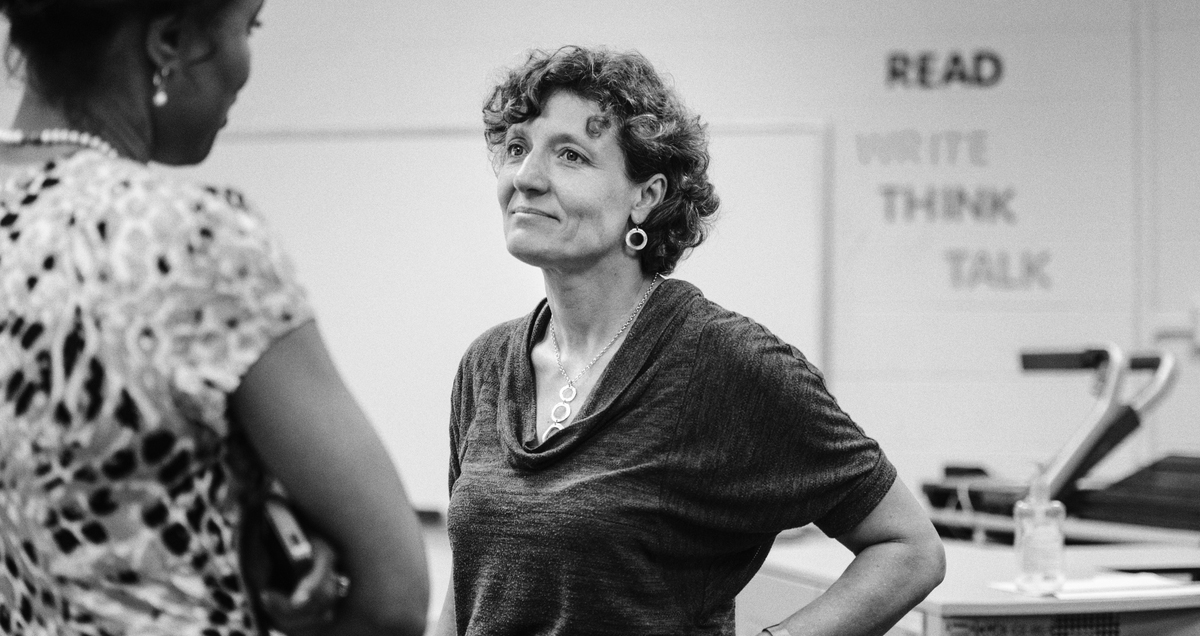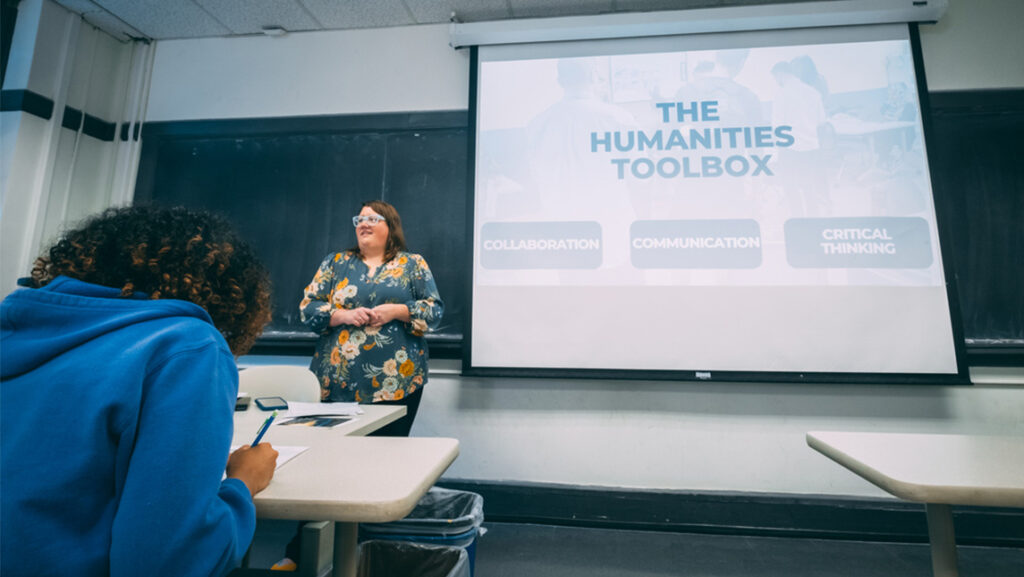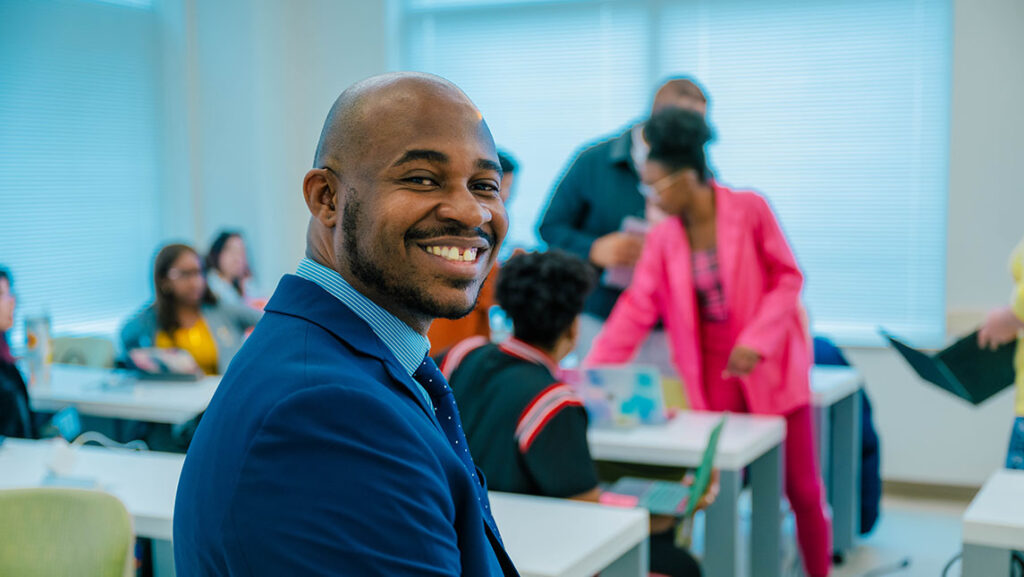“Early College” high school students in North Carolina are experiencing higher levels of success than many of their peers at traditional high schools, according to research conducted by Dr. Julie Edmunds at UNCG.
“While the U.S. economy increasingly demands workers educated beyond the high school level, many of our teenagers are leaving high school unprepared,” says Dr. Edmunds. “Early college high schools are very purposely designed to get young people ready for college and to provide them access to college courses, and it’s clear that they are providing very positive results.”
Edmunds has been tracking the progress of early college students since 2006 and has found positive impacts at both the high school and college levels. In her study, 86 percent of early college students enrolled in college compared to 65 percent of the control group.
At the high school-level, she has found that early college students are more likely to be taking and succeeding in the courses they need for college; they are more engaged, have better attendance and lower suspension rates, and have higher expectations. Students also reported more rigorous and relevant instruction, better relationships, as well as greater academic, emotional, and social support.
The UNCG researcher has discovered that a variety of students benefit from the early college model. Most early colleges target students who are underrepresented in college, including those who are low-income or who would be the first in their family to attend a university. “The early college model is having a positive impact on all students, and, in some cases, it is reducing gaps between different populations,” Dr. Edmunds said.
Thanks to ongoing support from the General Assembly, North Carolina is home to more than 75 early college high schools, accounting for nearly a third of the 240 early colleges around the nation. Early college programs offer small, supportive learning environments that reduce barriers that keep students from attending college. Graduates of the programs earn high school diplomas, collegiate-level skills, and two years of tuition-free college credit or an associate’s degree.
Dr. Edmunds has been awarded a $1.2 million grant from the U.S. Department of Education to conduct additional research into the success of early college students at higher education institutions. Early data suggests these students will outperform traditional high school students at the post-secondary level.
Because students choose to attend early colleges, it can be challenging to make comparisons between their performance and the performance of other schools in the state. However, Dr. Edmunds’s study took advantage of schools that used lotteries to select students. Her research compares students randomly selected to attend with those who applied but were not selected. “This means that we’re comparing apples to apples,” explained Edmunds.
Since its inception, Edmunds’s project has received $5.9 million in federal funding. “Edmunds has been one of, if not the most, knowledgeable and thoughtful researchers about early college schools and continued efforts to expand and adapt them around the country,” shares Joel Vargas, the Vice President of Jobs for the Future, a company that provides technical assistance to early colleges nationwide. But the SERVE Center project director wants her work to reach even further.
She hopes that her ongoing exploration of the success of early college high schools will lead to a better educational experience across all high school systems. She envisions traditional high schools that expect their entire student body to attend college, placing greater focus on college readiness and providing early access to college courses.
“Early colleges are changing some of the dialogue and thinking about high school. It’s about re-envisioning what it takes to successfully prepare students for college and today’s jobs,” says Edmunds.
Article by Mary McLean, Sangeetha Shivaji, and Paul Mason
See Dr. Edmunds describe her work in her own words at https://vialogues.com/vialogues/play/11859.



